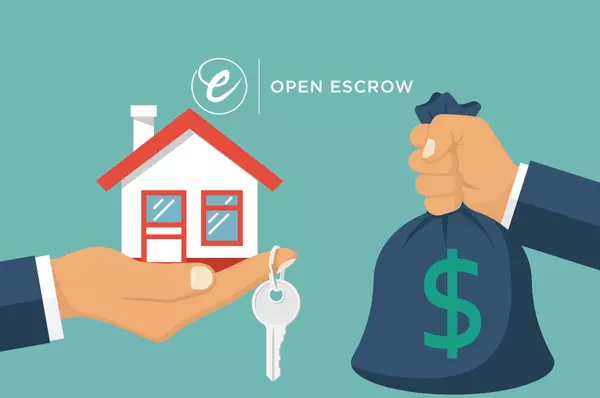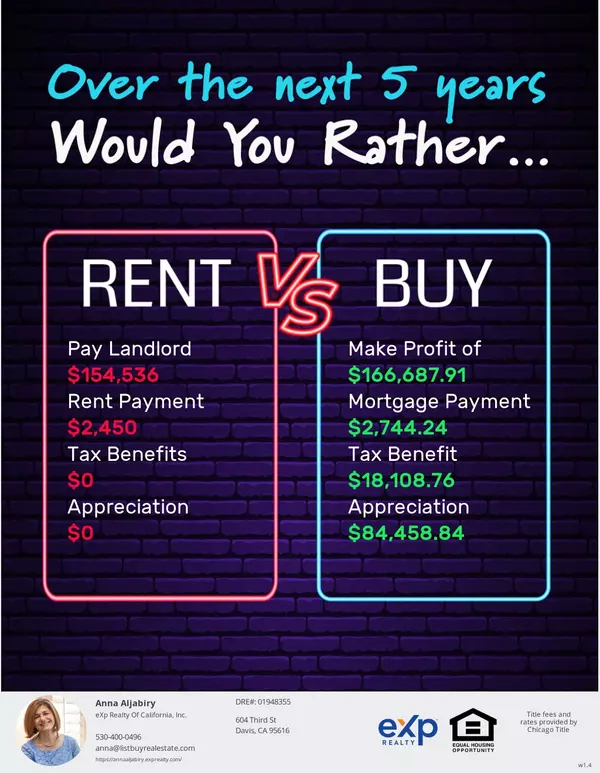
Make Your Home Energy Efficient
If you’re buying an older heritage home, it won’t be quite as energy-efficient as a modern home. But there are many construction styles, each with its own set of environmental issues. If you want to know how efficient a home is, you need some key information. When buying a home, you want to understand all financial aspects of your purchase. You know what your mortgage payment will be. You know what your property taxes will be. And you know what any escrow fees will be. But no matter what kind of home you buy, you’re going to have to pay for utilities. And these bills aren’t always easy to predict. Check Energy Efficiency Features During Your Walkthrough When you first view the home, there are a few key indicators you can look for. These can help you gauge how energy-efficient a home is. The largest power draw in a home comes from the appliances. The first thing you should look at is appliances because most homes are sold with some appliances. In the United States, all appliances are sold with energy labels. These will tell you the estimated yearly power draw. Ideally, you’d like to see Energy Star-certified appliances. The more modern they are, the more efficient they are. You can compare the power ratings of the appliances you have at home to the home you are viewing. Then you will get an idea of how your power bill might change. Solar system reduces energy bill You should also pay special attention to the thermostats. The older, non-programmable thermostats would indicate that the HVAC system is either outdated or installed inexpensively. If you see a very old thermostat, it may indicate that the HVAC system is too old to be compatible with modern hardware. Alternatively, programmable thermostats would indicate that the previous owner invested in their heating system, ensuring it was as efficient as possible. By comparing this data against your current home, you should get an idea of what to expect on a utility bill. To further clarify your estimations, there are a few questions you can ask the homeowner. Change your bulbs to LED Look for features in the home that contribute to lowering your energy bill, such as skylight, whole-house fan, dual-pane windows, good insulations, solar system, LED lighting, heated floors, efficient appliances, roof type, weather strips, and such. Homes may not have all these features, but some of them would help lower the utility bill. Ask the Homeowner Some of the information you need won’t be available from a simple walk around. But a lot of it is easily available if you ask the right questions. The first thing you should ask is the utility bills for the past 12 months. If there is a lot of money that can’t be accounted for by the appliances you saw, that would indicate an inefficient home. You should also ask the homeowner what the R-value of the insulation is. In California, it’s recommended that homes are insulated between 25 and 38 R-Value. Your home will stay cooler in the summer and warmer in the winter if you have better insulation. This will save you a lot of money on utilities. In California, homeowners can get funding assistance to add more insulation to their homes. Ask your realtor about those programs if you decide to buy an older home. Check the Energy Star logo on the appliances You can also ask the homeowner about the types of windows that are installed. Dual-pane windows keep the home temperature in control; while single-pane windows let your energy bill escalate. Ask for any maintenance records the seller might have for the existing heating or cooling system. Not everyone will have this information. However, a homeowner who has spent time and money making their home energy efficient will. Ask Your Realtor If you’re working with a realtor, he or she can help you find out the information you need, and open lines of communication between you and the homeowner. Should you decide to move forward with buying this house, the home inspection report will help you get the final word on the efficiency of the home. If you are selling your home, your realtor could provide options for you to add more energy-efficiency features to your home in order to stand out amongst the other inefficient homes. Simple modifications, such as changing all bulbs in your home to LED lights could go a long way. If you are thinking of selling your house now or in the near future, call us to put you on the right path to market your home as an energy-efficient home.

10 Tips to Buy a House and Shop for Best Loan
To most people, purchasing the first house is an overwhelming job. But countless other people were there before and lived to tell a story. If you do your homework upfront, there's a good chance of finding the best house and the best loan you can afford. To the surprise of most first-time home buyers, shopping for a house is not the first thing to be done! The loan should always come first to avoid disappointment. The first five steps below are essential to your success. Review Your Finances First, consider savings. Look into how much you could put aside for a down payment or save an additional amount for it. Next, review your monthly expenditures and figure out where to possibly cut down in order to allocate to mortgage payment. As you study the best neighborhoods, calculate how moving to your new home will decrease or increase your daily commute costs. Find out Programs for First-Time Home Buyers What is a good deal? Most cities within California have programs to assist first-time home buyers with the down payment and other closing expenses. Having some knowledge about the various available programs helps you choose the one that fits your needs, helps you understand your lender, and helps you plan for the final closing expenses. Contact Lenders Many realtors won't spend time with customers who have not verified their purchase ability with a lender. So, if you are not a cash buyer, and most first-time home buyers are not, speak to a lender or mortgage broker to figure out your ability to buy a home. Most lenders give you approximate numbers within a few hours. If you need actual approval, then you might need to wait a few days. A lender or agent will rate your credit rating and the amount that are able to qualify to get financing. That is where your homework on first-time house buyer applications can help. If you feel you qualify, start looking for a lender… call us for recommendations for local lenders. Do a little research online; however, having a 1-on-1 meeting with a lender will give you immediate review of your financial situation, answer questions and, if needed, indicate how it is possible to enhance your credit score. Online calculators don't always include taxes and insurance or PMI (Private Mortgage Insurance policy necessary if the deposit is less than 20 percent). Online calculators also do not include loan fees. Go Shopping for a Loan Check loan rates with two or more lenders: Do not allow loyalty to a family lender to block you from seeking a pre-approval or looking for a mortgage outside your circle of friends. It is best to shop around for loan even if you only qualify for a single type of loan. Different lenders charge different fees for the exact same loan type and loan amount. When you think you got the best deal on a mortgage, make sure to get pre-approval to avoid any surprises. Being pre-approved is better than just simply being pre-qualified. Why? Because pre-qualification means your lender bases his evaluation on what you tell him. Pre-approval means you provide your lender with all the paperwork necessary to run your credit. Keep a Backup Lender Qualifying for a loan may not mean your loan will be approved. The underwriting guidelines and process is very tedious. A lender could suspend financing a loan at any point in time during the transaction and before close of escrow. Loan suspension can happen even after the lender approves a loan and after escrow documents are signed. A second lender who already qualified you for a mortgage gives you an alternate way to keep the loan process going with a different lender. Look for a Realtor Find a realtor to help you. Starting July 1, 2024, realtors will start signing Buyer-Broker Agreements with the buyers before they can take them to see homes for sale. The seller will no longer pay for all realtors’ commissions on both sides. However, commission to realtors will be a negotiable item like any other terms when buying a property. You probably have already found a realtor who directed you to a lender (point 3 above). If you have not, then find a realtor once you get pre-qualified. You will be more confident and comfortable shopping for a home when you have a letter in your hand showing the amount of the loan you qualify for and the highest purchase price. call us for recommendations on the best realtors in your area. Choose a neighborhood Your best location might not fit your budget. Try to explore various areas and give yourself a chance to compare prices and locations. The farther you get from metropolitan areas, the cheaper the homes are. On the flip side, it is an easy trap to think that the long commute is cheap. The stress and cost of a long commute can have a toll on marriages, health, and savings. So, it is a good idea to calculate how much the commute will cost you and if the cost of that commute is the same as your monthly mortgage difference if you live close to work. Revisit your numbers when you locate a house Review and update your finances: When you are ready to make an offer on a house, review your budget again. This time, ask your realtor to provide you with closing costs and any other upfront expenses, such as necessary repairs. You also need to set aside some money for moving expenses, appliances, and furniture that you may need to buy before you can move to the house. Don’t forget to add HOA (Home Owner’s Association) fee if required in that location. Review Utility Bills Homes with high ceilings and more windows have bigger utility bills. Heating and cooling high ceiling spaces takes longer time. Windows could leak air and cause energy loss. Utility bills could soar. For those reasons, request the energy bills from the past 12 months to lay out a typical monthly price. Perform a Home Inspection After your offer has been approved, splurge for a home inspection. Spending even $500 can instruct you about the home and help you determine if you really want to pay for necessary repairs. You can also leverage your offer depending upon the results of the inspection report and make the vendor financially responsible for all or a few of the repairs. Here is the Most Important Thing If you do your homework, you can buy your dream home: One of the biggest decisions and investments you could make is buying your first home. Try not to add more financial obligations to your plate. If you are thinking of buying a car, you may want to postpone it to avoid another monthly payment. Therefore, it is wise to save more money for a down payment on your house. The higher the deposit, the smaller the loan. The smaller the loan, the more comfortable your life will be, Call Us for more guidance.
Categories
Recent Posts










